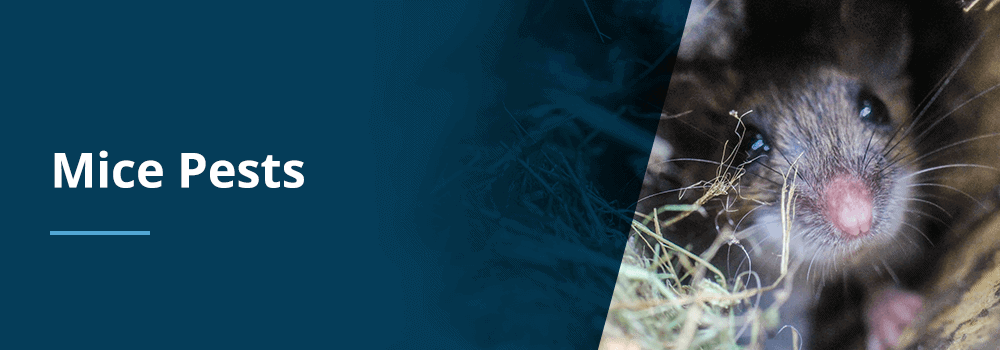Mice Pests

Are Mice Pests?
Mice may be cute in a cartoon, but it’s a different story when they invade your home or business. If you’ve found mouse droppings, chewed-through food packaging or heard scurrying behind your walls, you probably can’t wait to kick out these unwelcome guests. Mice are one of the most troublesome and destructive pests in the world and a common issue for homeowners. According to a 2017 survey, over a third of homeowners have spotted a rodent in their homes within the past year.
Mice aren’t fussy guests either and can be found just about everywhere in the world, including rural towns and bustling cities. Whether you live in a mansion or a cabin in the woods, don’t be surprised if you find evidence of these tiny rodents. As long as you can provide shelter, food and water, mice will feel right at home.
What’s the Difference Between a Mouse and a Rat?
Mice and rats both belong to a group of mammals called Rodentia. However, rats and mice are not the same species, and they have different physical characteristics, behaviors and movements. For example, mice are much smaller than rats and can enter through holes as tiny as 1/4 of an inch. Since mice are so tiny and can easily get into buildings, mouse infestations are much more common than rat infestations.
It’s essential to understand how mice behave and where they prefer to live to treat an infestation successfully.
Are Mice Dangerous?
Yes, mice are dangerous because they spread disease and damage property. According to the Centers for Disease Control and Prevention (CDC), mice and rats spread over 35 diseases worldwide. These diseases can be spread directly by handling a mouse or coming into contact with their saliva, droppings or urine. For example, mouse droppings can carry salmonella and hantavirus. Mice can also spread illnesses to humans indirectly by fleas, mites or ticks. Here are a few more ways mice can cause harm:
- Mice will chew on anything they can to build their nests, including wood, paper and cloth.
- Mice will chew on wire insulation or build a nest in a large electrical appliance, potentially leading to a fire.
- Mice will eat just about any food and contaminate items with their urine, feces and saliva.
- Mice can cause damage to the structure of your home and destroy gardens.
- Mice may cause allergies and asthma in some individuals.
- Mice store food, which can cause an insect infestation.
Mice can also cause psychological and emotional harm, leading to anxiety, depression, insomnia, phobias and post-traumatic stress disorder. Overall, these button-eyed characters are no joke in real life.
How Many Mice Do You Have If You Only See One?
While you may only see a single mouse in your home, there are likely many more nearby.
Mice breed very quickly. Starting when a female is only two months old, mice breed as often as every 30 days, so it’s crucial to start controlling the population right away.
If you spot even just a single mouse in your house, there may not be dozens more now, but you can bet there will be if nothing prevents them from reproducing!
What You’ll Learn in This Guide
If you’re ready to learn more or gain control of a mouse problem in your home or business, keep reading. This guide answers common questions and provides tips to help you enjoy a comfortable, pest-free home again. We’ll cover topics such as:
- How to identify a mouse
- Where mice hide
- Signs of mice
- How mice get into your home
- How to get rid of mice
If you need to address a mouse infestation now and live in the Hudson Valley, New York, region, please reach out to us at Pestech Pest Solutions.
